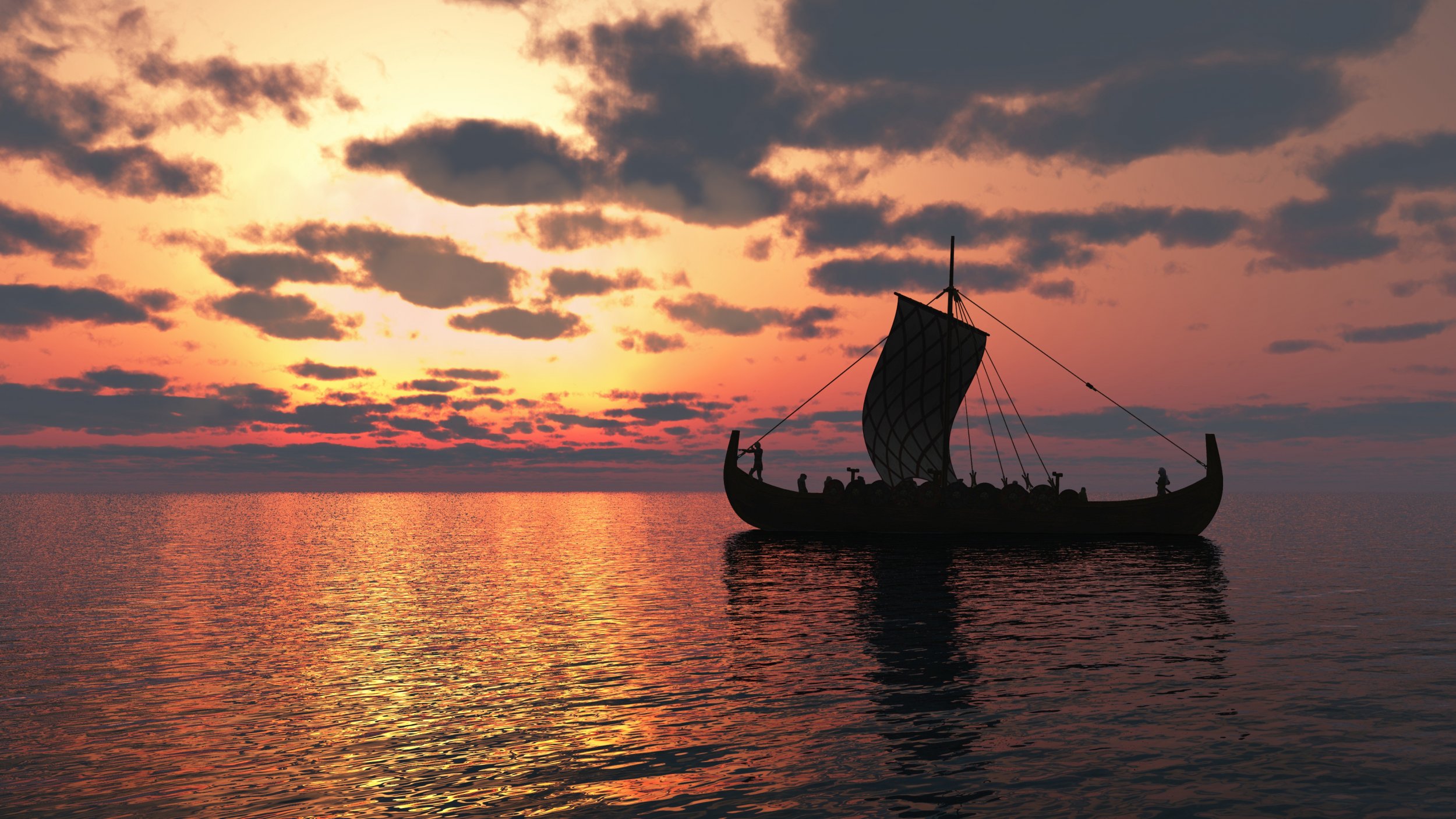
Archaeologists believe they have discovered an ancient Viking ship buried beneath the soil in a Norwegian national park.
Scientists spotted a vessel-like shape on radar images of Borre National Park in Vestfold County, southeast of the Oslo region, Agence France-Press reported.
Vestfold has yielded a number of Viking treasures and is home to three European ship burials. Borre Park hosts numerous burial mounds dating back to the Viking age (800-1050) and earlier. Archaeologists used a special geophysical technology called ground-penetrating radar (GPR) to locate the vessel-shaped object. Further research is needed to find out how large the possible ship is.
"The GPR data clearly show the shape of a ship, and we can see weak traces of a circular depression around the vessel. This could point to the existence of a mound that was later removed," Terje Gansum, leader of the department for cultural heritage management in Vestfold County, said in a statement, according to AFP.
Jan Bill, curator of the Viking Ship Collection at the University of Oslo's Museum of Cultural History, told Newsweek the GPR anomaly "surely showed" a vessel had been buried at the site. "It is very difficult to explain the ship-shaped anomaly in any other way, and its orientation is also similar to that of most other Scandinavian ship graves," he said.
Bill noted the ship was reasonably large, at 45 feet in length, but not as big as some other examples. He estimated that it dates back to the Viking age or even earlier. According to the Associated Press, Gansum and his team plan to use noninvasive methods to probe the find further.
Vikings sometimes buried high-status individuals on land, using boats as a tomb. Bill said, "Most [ship burials] have been plundered, but they were originally extraordinarily rich burials given to the very most important persons, presumably kings, queens and princes."
Ships have played an important role in Scandinavia since the Bronze Age, since they allowed people to travel great distances while avoiding treacherous mountains and forests. "The ship graves are utilizing this significance of the ship to promote the importance of the clans that buried their leaders in ships," Bill added.
"The discovery of a new Viking ship in Vestfold is a historic event that will attract international attention," said Ola Elvestuen, Norway's climate and environment minister, according to AFP.
Bill agreed that the find is exciting but noted the ship may be preserved only as "layers of different soil and patterns of iron nails, plus perhaps some grave goods and remains of animals and people."
Researchers made a similar discovery last year when they uncovered a Viking ship buried just 20 inches below the surface of a field in Østfold County in southeastern Norway. Scientists created a digital model of the 66-foot vessel, named the "Jellestad ship."
"This find is incredibly exciting, as we only know three well-preserved Viking ship finds in Norway, [all] excavated a long time ago," Knut Paasche, head of the Department of Digital Archaeology at the Norwegian Institute for Cultural Heritage Research and an expert on Viking ships, said in a statement released last October. "This new ship will certainly be of great historical significance, as it can be investigated with all modern means of archaeology."
Archaeologists investigating Viking graves in Iceland recently discovered that powerful male Vikings may have been buried with horses. Evidence suggests the animals may have been killed as part of a brutal ritual where their throats were cut and their heads bashed in.
"The theatrics of the act and the violent and visceral drama may have helped the animal killing rituals to become quickly popular in Iceland," the researchers wrote in a study released in January.
This article has been updated to include a comment from Jan Bill.
Uncommon Knowledge
Newsweek is committed to challenging conventional wisdom and finding connections in the search for common ground.
Newsweek is committed to challenging conventional wisdom and finding connections in the search for common ground.
About the writer
Katherine Hignett is a reporter based in London. She currently covers current affairs, health and science. Prior to joining Newsweek ... Read more
To read how Newsweek uses AI as a newsroom tool, Click here.








